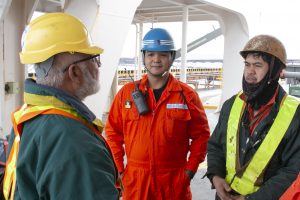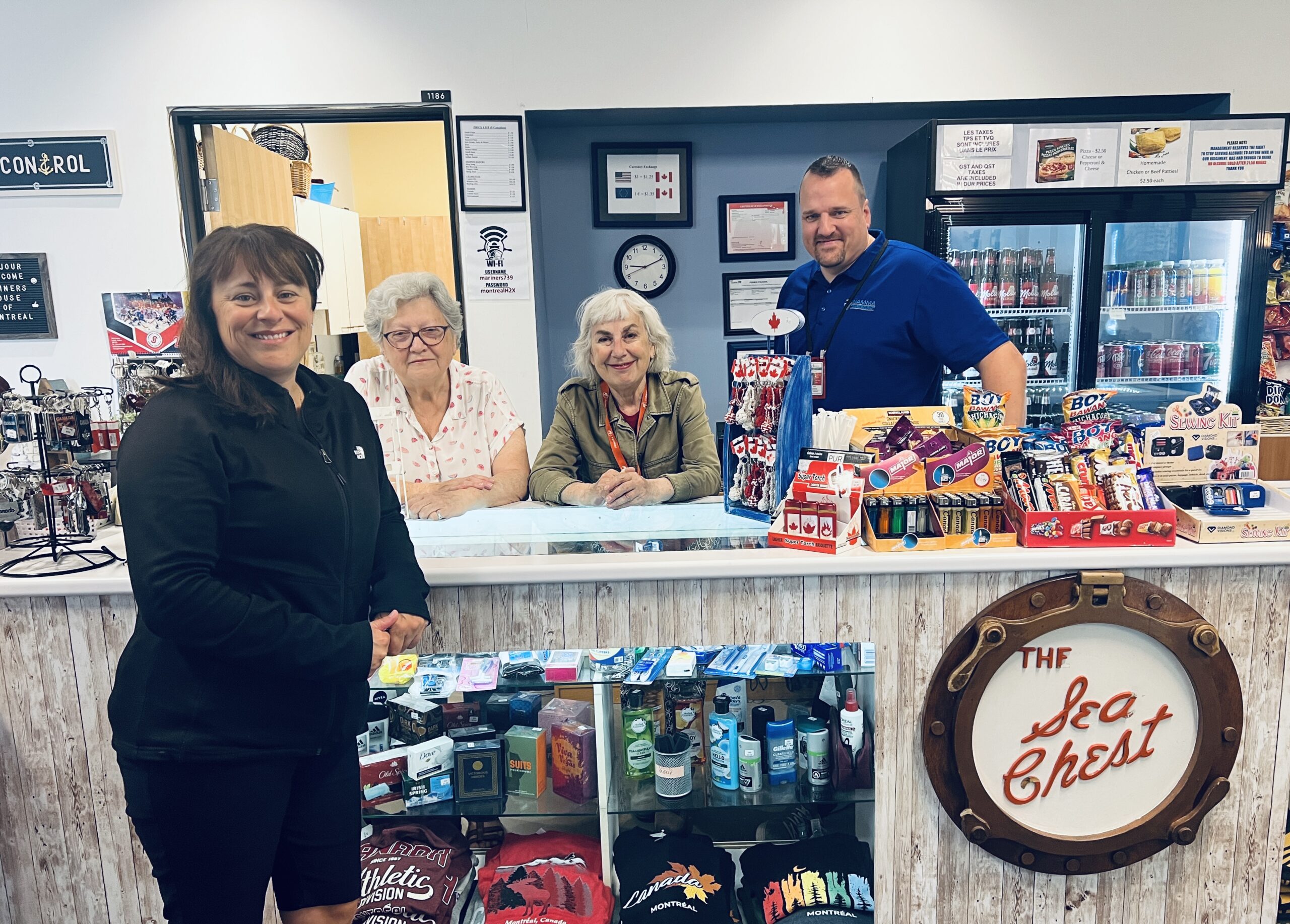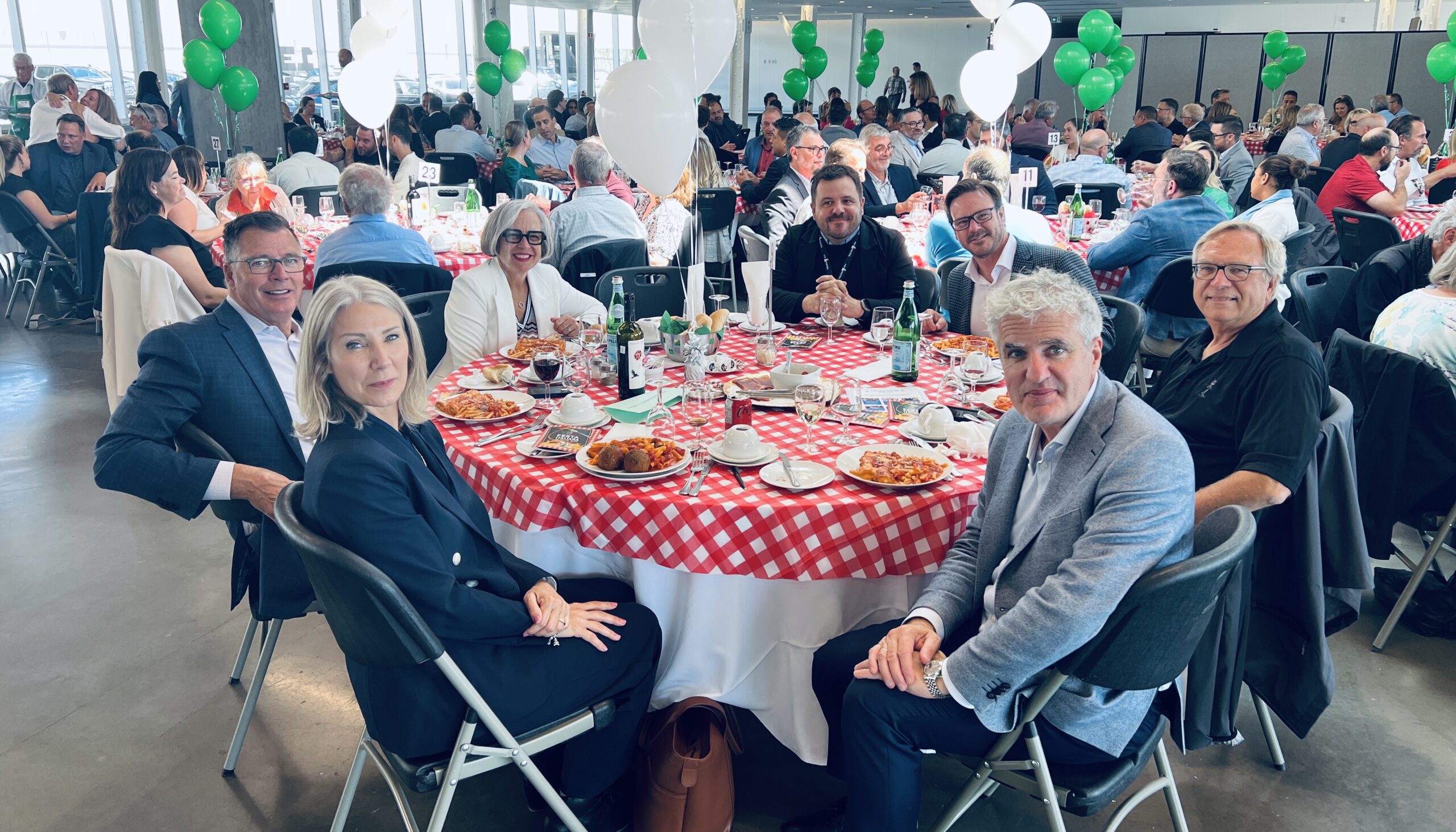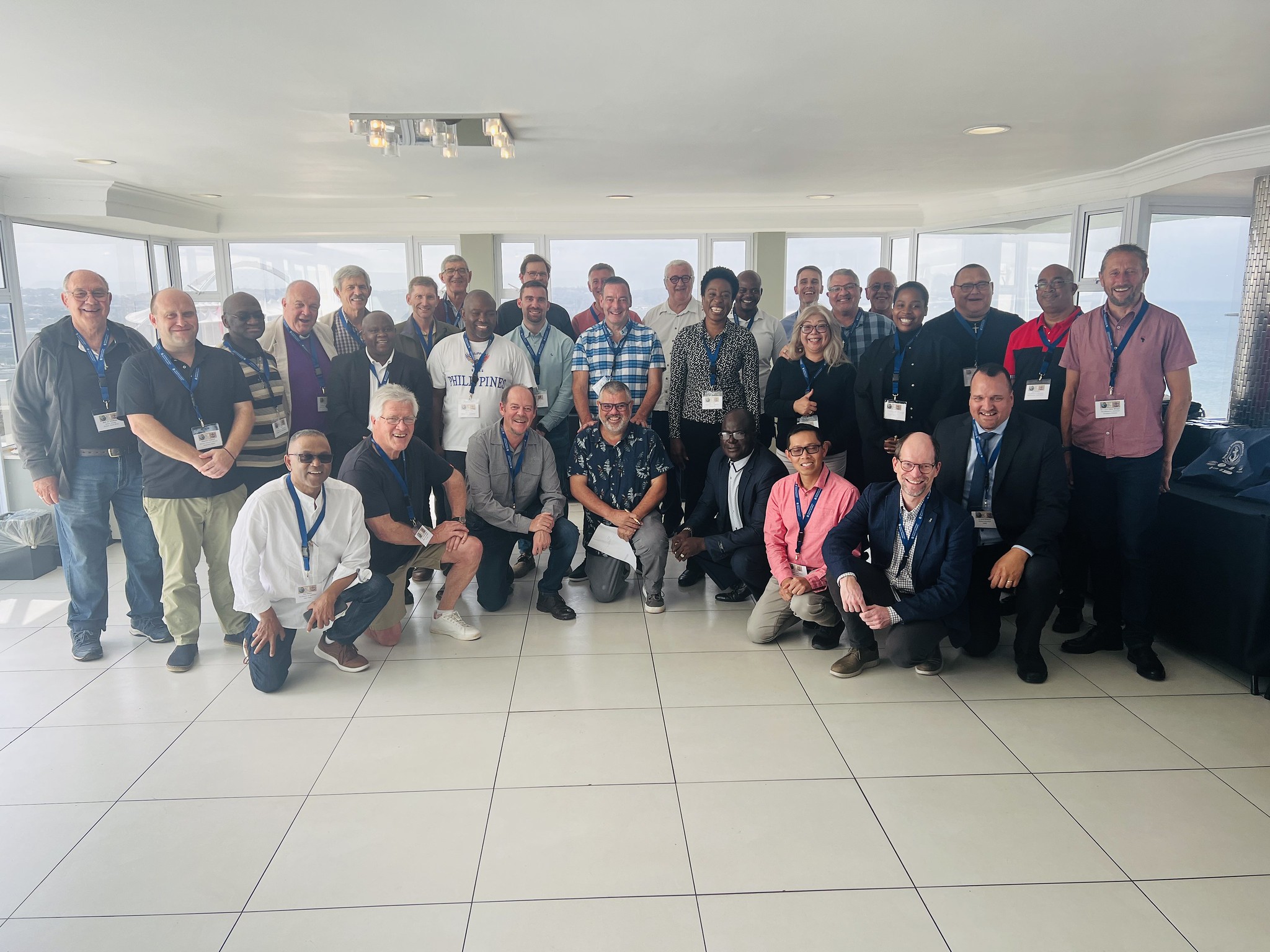We all seek people we can trust. When seafarers come to a port city after days or weeks at sea, they appreciate the same. Care of seafarers is nearly as old as the profession.
The Apostleship of the Sea, or Stella Maris as it is now known, is a global charity that supports seafarers and their families. The Catholic organization founded in Scotland in 1920, offered seamen hostels where they could stay while their ships discharged cargo and prepared to sail again. The housing manned by hundreds of parish volunteers offered the sailors hospitality and care.
In Vancouver, B.C., seafarers today find a similar welcome in an abbreviated time frame of hours rather than days available when they dock. They look for a place they can trust to give accurate information, wire money to their families, answer questions concerning work-related problems, health concerns or personal challenges they face. The ancient name, Stella Maris, is the logo of the Apostleship of the Sea; a trusted name to seafarers reflecting protection and guidance.
The Vancouver Stella Maris mission, under the leadership of its port chaplain, Deacon Dileep Athaide provides practical and pastoral care to all seafarers. The mission can coordinate with 334 Stella Maris centers worldwide in 79 countries as needed.
A former university instructor, and most recent chaplain, Deacon Dileep has been caring for seafarers since his ordination to the Permanent Diaconate in 2015. His background with labor unions, other non-profit organizations and a five-year course of study to become a deacon provides a valuable blend of knowledge and compassion at the Vancouver center.
“We exist for seafarers,” he said.
An attempt to reach out to seafarers was first made in the Vancouver port in 1930, but due to the depression it lasted one year before closing its doors. The club was reactivated in 1937.
In 1942, the work of the Stella Maris was assigned to St. Paul’s parish on Cordova St. under the guidance of the Atonement Fathers which continued supporting until at least 1980 according to the Roman Catholic Archdiocese of Vancouver archives.
Church records report that since other Christian missions existed in the port, an attempt at ecumenical work was approved by Archbishop Carney in 1969 after much discussion and deliberation. The AOS joined with the Anglican Missions to Seamen, and the British Sailors Society to form the Seafarers Society of British Columbia as their goals were very similar.
Within three years, differences in ideologies and philosophies resulted in the dissolution of the Society in 1973. This led to a lack of funding and a physical location for the AOS. A modified mission continued operating out of two rooms in the parish rectory. Ship visitation continued and Mass on board was celebrated as requested.
By 1976, the Rev. Celestine Leahy, then priest serving St. Paul’s parish and overseeing the mission, noted that additional staff was needed to serve the AOS outreach. Early in 1978, Rev. Leahy traveled to New York to discuss additional personnel with the Superior-General of the Atonement Fathers. No additional staff was available.
A new attempt at collaboration followed between the Catholic Charities and the modified mission. The result of a study conducted by an Ad Hoc Committee of the Catholic Charities was presented. The study concluded an authentic need for a Roman Catholic presence and outreach in the port clearly existed. The responsibility for the AOS was transferred from the Atonement Fathers, St. Paul’s parish, to the Archdiocese in 1980. The Rev. Roland Joncas was appointed full-time chaplain. He rented office space in the Anglican mission building, but the Stella Maris maintained its separate identity, the church documents record.
“AOS will in every way maintain its own identity, so familiar to seamen throughout the world,” said the former executive director of the Catholic Charities during that time.
Since then, those involved, press through former tensions to work as a team of various faith conventions creating a community which regards the total wellbeing of seafarers and their families the core of their work.
Deacon Dileep noted that the Catholic chaplains have been ministering to seafarers in Vancouver for 50 years. The ministry continues to evolve. It is more than providing rosaries and celebrating Mass, tasks that are still necessary and available.
“The nature of our work has changed. It is more holistic . . . more pastoral as well as meeting the temporal care of the seafarers. It is getting to know them. If there is a pastoral need, it will come through,” he said.
“For example, I recently met two Filipino crew members who both had children less than six months old, who they have not met. The babies were born while at sea. We recognize that the pastoral and temporal needs of these men are intertwined.”
The Stella Maris chaplain and volunteers operate from two centres in the Vancouver port area. One is in the downtown area and the second at Roberts Bank, a suburb of Delta.
Both are administrated by the Anglican Church, but jointly used by the Ministry to Seafarers, with a full-time Christian Reformed Church chaplain; The Mission to Seafarers, with a full-time ordained Anglican chaplain; and the Stella Maris, with Chaplain Athaide serving part-time.
“Ours is an ecumenical setting. We work well together as a team. We coordinate our work so we do not unnecessarily duplicate services,” said the 70-year-old chaplain.
The unique partnership in ministry, uncommon in other religious venues, is a gift to the seafarers and to Canada’s largest port. The blended outreach demonstrates the admonition by the late Dr. Roald Kverndal to not “fracture the face of Christ on the waterfront.”
Kverndal, a respected maritime ministry historian, wrote the study Seamen’s Missions: Their Origin and Early Growth. He was awarded a Doctorate of Theology by Oslo University for his dissertation on the worldwide seafarers’ mission movement. Once a seafarer himself and later a chaplain, his insight is scholarly and pertinent.
The Vancouver centres provide for the basic needs of seafarers with a small store, pool tables, TV, transportation to shopping, rest, and a time of ecumenical prayer. The Roberts Bank centre is within walking distance of five berths and offers 24-hour free Wi-Fi. The chaplain estimates between 1,000 to 1,200 seafarers visit the centre monthly. The downtown centre sees about one-third as many.
The doors of the seafarer’s centres have been closed since March 2020 due to COVID-19 but are beginning to reopen with required adjustments for health safety in place.
Even so, throughout the compromised health situation, Deacon Dileep continued to board ships for gangway visits, delivering care packages, chocolates, rosaries and friendship. In an extremely busy port, he navigates the steep gangways of five to 10 ships per week.
“The main characteristic we have as chaplains is to be open, welcoming and good listeners for the seafarers,” said the deacon, who also serves as Vancouver’s Catholic Chaplaincy Coordinator.
Since Deacon Dileep recognizes the value of networking with colleagues the Vancouver mission has developed into a significant global outreach. Advanced internet opportunities, previously unavailable, enhance the mission’s growth and options to care for seafarers.
After assuming his appointment to the Vancouver port five years ago, he developed power point presentations and began to educate the clergy and present to the Deaneries.
“It opened their eyes,” he said. “They had no idea.”
The accelerated development is due in part to Deacon Dileep’s trip to Yorkshire and similar locations where he gained insight from seasoned chaplains to identify best practices in his field of service. His excitement for the emerging mission to seafarers is obvious. The zestful senior shows no sign of slowing down.
Regarding chaplaincy training as a path of ministry development, port ministry was not even on the radar screen as an option five years ago according to Athaide. Now it is emerging alongside migrant and refuge support as a role for deacons rather than only priests. Young deacons in training are intrigued by it.
Born in India, the vibrant port chaplain immigrated to Canada at age 14. He has a special connection with seafarers from his home country and Filipinos who jointly make up about 80 percent of seafarers globally. He serves all with the genuine love of God. Whether picking up breads and sweets from a local bakery and delivering to ships, providing a blessing on a ship where there has been a death at sea, or navigating challenges from a global pandemic the Stella maris mission at Vancouver continues to operate full steam ahead.





